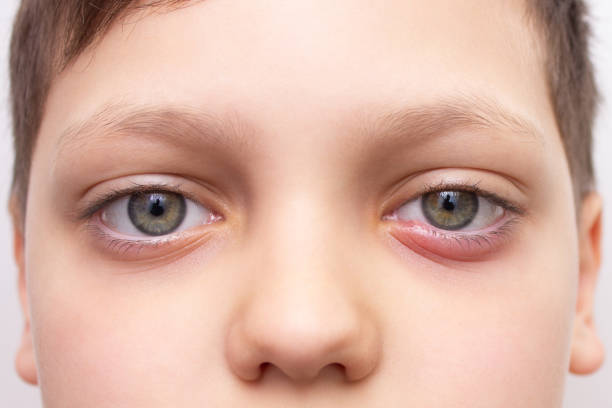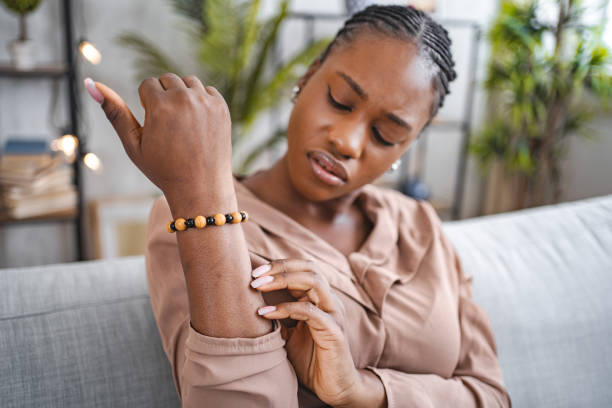Your Guide to contaminated Cyst Removal in London by Trusted Specialists

Guide to Infected Cyst Removal
Many people have harmless cysts—small lumps under the skin—that can appear anywhere on the body, but when infected, professional care is essential, such as infected cyst removal in London.But if a cyst becomes infected or begins to hurt, it leads to serious discomfort and worry. This treatment is meant to safely take out infected cysts, giving you relief and stopping any further problems.
When cysts are infected or painful, it’s important to see a doctor right away, as infection may cause swelling, redness and pus coming out of the cyst. If you don’t treat these symptoms, you could experience more pain, and the infection could move to nearby tissues. For this reason, it’s important to go to a professional for proper treatment and successful removal.
We realise how different infected cysts can be for our patients. Our experts use specialised approaches that suit every patient, looking to remove the cysts in the safest way possible with less discomfort and good recovery. Read on to learn about the symptoms of infected cysts, the options for treatment, the risks, the benefits and aftercare advice to help you decide on your health care.
How do you know if you have an Infected cyst removal?
Recognising when you have a painful or infected cyst means you can get treatment early and skip possible complications.
Redness and Swelling.
An infection in a cyst tends to cause the skin nearby to become red and inflamed. The region may also not be pleasant to touch with your hands.
The Sensations of Pain
Most of the time, infected cysts create more pain than harmless ones do. Sometimes, pressing on or near the cyst will be uncomfortable.
Pus formation
In a few cases, the cyst will leak pus or fluid. A strong smell from the discharge is usually a sign that something is infected.
Rapid Changes
When a cyst gets bigger or changes its colour all of a sudden, it can mean that you have an infection or inflammation.
Additional Symptoms
If an infection is not treated, it can bring on fever or tiredness.
When Should You Go to a Doctor
If you have discharge, swelling or pain that doesn’t go away, immediately see a doctor. Having treatment early stops the infection from spreading and reduces the risk of serious problems.
What causes cyst infections and pain?
A number of different factors can result in inflammation and bacterial growth, which can cause some cysts to become infected or painful. Being aware of these causes allows us to stop complications and choose the best treatment.

Bacterial Infection
One main way an infection in a cyst happens is when bacteria are introduced through an opening in the skin close to or on the cyst. The bacteria inside the cyst make the area around it red and swollen, warm and begin to produce pus. Among the usual bacteria are Staphylococcus aureus, which may lead to skin infections.
The Skin Becomes Blocked By Pores And Hair Follicles
Usually, cysts occur when oil, dead skin or debris blocks a pore or hair follicle. The blockage holds fluid inside, which forms the cyst. Bacteria getting into the area can make the cyst red, swollen and painful.
Having the Area Damaged Over and Over
Rubbing, scratching or applying pressure to a cyst day after day can damage the skin and make it more at risk for infection. If the cyst is tight or you keep shaving it, you may experience more irritation and raise your risk of an infection.
Weakened Immune System
Anyone with a weakened immune system, either from diabetes or immunosuppressive drugs, is more likely to get cyst infections. If our immune system isn’t strong enough, bacteria become harder to control, and we have a higher risk of infection.
A Lack of Good Personal Hygiene
Not washing the cyst and the skin nearby creates a space for bacteria to collect. A cyst in a sweating or friction-prone area can raise the danger of infection.
If you learn about these causes, you’ll know how to avoid infections and get early treatment to prevent painful cysts.
Ways to Get Infected Cyst Removal
If the cyst becomes infected or painful, it should be treated right away to stop any further problems. Doctors may use different methods, depending on both how severe the infection is and where and how big the cyst is.
Antibiotic Therapy
Your doctor often manages mild infections by giving you antibiotics to control the bacterial infection. This way of treating inflammation and pain may help, though it usually won’t get rid of the cyst. Sometimes, antibiotics are teamed with other methods to help a patient get well.
Incision and Drainage.
If the cyst is inflamed and has pus inside, your health expert will likely drain it through an incision. A little cut releases the pus, and this immediately takes away the pressure and pain. Even so, the lining is usually left behind, so the cyst can show up again if nothing else is done.
Infected Cyst Removal With Surgery
If cysts are infected, it is often best to use surgery to remove them once and for all. To stop the cyst from returning, the entire sac is taken out during this procedure. A local anaesthetic is usually used during surgery so the patient feels very little discomfort. It is advised that if the cyst is large, it keeps returning or brings a lot of pain.
Laser Or Electrosurgical Techniques.
At some clinics, doctors can remove cysts with laser or electrosurgery, which reduces bleeding and leaves little scarring. They are most effective when treating cysts in places that are sensitive or easy to see.
It’s Better to Skip Home Remedies
Though there are many over-the-counter and home remedies for treatment, infected cysts should be handled by a doctor. By trying to hold a cyst yourself, you may only increase the risk of infection, scarring or allowing bacteria to move to other parts of your body.
Our specialists at Revitalise London help with cyst removal, ensuring each treatment is safe, effective and personal for you.
How Do You Know When It’s Time to See a Doctor for Cyst Removal?
It is important to see a doctor when a cyst becomes infected to avoid problems and ensure the infection is cleared up properly. If you spot any of these symptoms, you should think about getting infected cyst removal treatment from an expert.
Growing Pain and Inflammation
While mild pain is common with cysts, a rapid change in swelling or a rise in pain usually indicates that an infection is present. As a result, ordinary activities may be hard to carry out, revealing that a doctor should review the cyst.
The Area Around the Cyst Is Red and Warm
A red, warm cyst is often a sign that it is infected because of inflammation. It means your body is defending against bacteria, but if you don’t treat it, the infection might get worse.
Pus or Fluid Leak
When pus or other fluids come out of your cyst, it shows that you have an infection. If the discharge stinks and leaves stains on your clothes or bedding, it’s important to call a specialist for drainage and treatment.
Having a Fever or Feeling Unwell
Sometimes, when the infection leaves the cyst, it causes fever, chills or general feelings of sickness. Therefore, it is important to get an immediate medical assessment to prevent serious health problems.
Fast or noticeable changes in appearance
A fast increase in the size of the cyst or a noticeable change in colour could indicate the cyst is infected or has other problems. A correct diagnosis and treatment are more likely if a professional assessment is used.
Recurring Infections
Most of the time, cysts that are infected or inflamed repeatedly must be removed to avoid further discomfort and health problems.
If you try to treat an infected cyst on your own, you could increase your pain or leave scars. At our clinic, our team offers infected cyst removal treatment that is both safe and effective for you. If problems are detected early, they can be reduced, and recovery can happen sooner.
Explaining How Cyst Removal Treatment Functions
If you choose to remove an infected cyst at Revitalise London, the procedure takes care to eliminate the cyst and stop the infection, help you heal and lessen the chances of another cyst forming.
First Evaluation and Diagnosis of Infected Cyst Removal
At the onset, your practitioner will do a complete examination to find out the size, position and severity of the infection within the cyst. At times, an ultrasound or removing fluid from the skin might be needed to be certain of the diagnosis and to distinguish it from other skin diseases.
The area surrounding the cyst is numbed before the procedure to make it more comfortable. You won’t experience pain during the procedure, just some pressure or motion.
Making an incision and draining the infection
When a cyst is full of pus and looks swollen, you would normally begin by opening it with a small incision to drain the fluid. It makes the cyst more comfortable to remove and lowers inflammation.
After the cyst is drained, the surgeon gently removes the whole sac surrounding the cyst. It matters because any remaining sac can allow the cyst to come back. Removing all cancer cells reduces the chance of it coming back.
Antibiotic Treatment Or Permanent Infected Cyst Removal
If the infection is not serious, you may receive oral antibiotics; if it’s more serious, you’ll likely get topical treatment. It helps get rid of any remaining bacteria and aids the healing.
Cleaning and Handling Equipment and Aftercare
Every part of the procedure is carried out in a sterile manner to cut down on the chance of infection. When your cysts are removed, you will learn how to care for the wound, what to watch out for and ways to encourage healing.
Treatment for infectious cysts at Revitalise London helps remove the cyst safely, manage the infection and reduce any chance of scarring. Expert specialists use effective techniques so you can enjoy excellent results with little downtime and much smoother skin.
What To Expect from Infected Cyst Removal
It is important to understand how infected cyst removal treatment can help or harm you before you decide. Our main focus at Revitalise London is on providing safe and effective outcomes.
Reasons to Remove an Infected Cyst
Comfort: A cyst that becomes infected may result in severe pain, swelling and soreness. Having the growths removed gets rid of the symptoms quickly and boosts your happiness.
Removing the cyst sac and releasing pus through the procedure greatly reduces the chances of another infection or abscess.
Appearance Problems: Cysts, when they are infected, can cause the skin to become red, swollen and at times scar. Experienced removal helps your skin look smooth and stops permanent marks.
After surgery, your doctor can send the removed tissue to a lab to check for other possible skin issues.
Things to Consider: Infected cyst removal
Although the procedure cures the infection, it may introduce new bacteria. However, the chance is small. When strict sterile technique is followed, the risk is greatly reduced.
Mild bleeding or bruising near the treated area is common and normally goes away rapidly.
Large or deeply placed cysts can cause minor scarring. Yet, the use of advanced surgeries and the right aftercare can lower the risk.
A cyst may return if some of the sac is left within the body. For this reason, it’s important to have professional help with total elimination.
Weighing the Positive and Negative Results
For most people, the positives from removing infected cysts are much greater than the possible risks. A safe and effective outcome is more likely if you use the right technique, give antibiotics if they are needed and look after the wound properly. We personalise our treatments at Revitalise London to give you effective infection control, pain relief and attractive results.
Going for professional cyst removal helps keep you healthy and gives you expert care that delivers lasting benefits and lowers the risks involved.
Possible Problems and Risks Connected to the Removal of an Infected Cyst
Though most infections are treated safely through cyst removal, it’s necessary to be aware of possible risks and issues. Knowing the facts helps you choose well and get ready for a good recovery.
- Although the procedure treats infection, there is a small chance that the infection remains or spreads if bacteria are not completely removed. If you look after your skin and follow your practitioner’s directions, the risk of complications will be much less.
- A little bleeding during and after the procedure is normal, but it is very unusual for there to be a lot or for it to last. Our surgeons try to prevent excessive bleeding during the surgery.
- Scars are possible anytime a surgical procedure is performed. The thing that determines how noticeable and large a scar will be is the size of the cyst, where it appears and your skin’s condition. We choose methods that help reduce scarring, mainly for areas that are easy to see
- If all of the cyst sac isn’t taken out during surgery, there is a chance the cyst will come back. This is the reason that making sure removal is done by trained professionals helps you achieve lasting success.
- A little tenderness or unease after the procedure is usual and can be soothed by taking over-the-counter pain relievers. If the pain doesn’t improve or gets worse, you should see your healthcare provider.
- Patients may sometimes react to local anaesthetics or antiseptics used during their treatment. Remember to mention all allergies or sensitivities to your practitioner ahead of your visit.
- Various things, such as smoking, diabetes or other health conditions, can cause healing to happen more gradually. If your practitioner decides there are reasons to change your treatment, they will explain this to you.
- Being aware of these risks will give you confidence to have your infected cyst addressed at Revitalise London. Your safety is most important to us, and we always discuss and manage your challenges with you.
Why Is Revitalise London a Good Place to Get Infected Cyst Removal Treatment
When you have an infected or painful cyst, getting help from a professional is most important. Here at Revitalise London, we provide safe, trustworthy care by combining caring with expert medical treatment for every patient.

Surgical Skill for Dealing with Infected Cysts
All of our medical staff are British qualified and have years of experience removing infected cysts. We go beyond just treating the outside problem—we treat the infection inside, get rid of the whole cyst sac and promote safe and complete healing.
Infected Cyst Removal Modern & Good Safety
We rely on new tools that help us remove infected tissue very precisely. If your cyst is red and sore, filled with pus or located deep under the skin, our current methods will remove it easily with little harm to the surrounding skin.
Specifically Designed Plans Of Infected Cyst Removal
Revitalise London works with clients whose problems are all unique. By examining where, how large and how your cyst is, we plan your treatment. To help avoid scars and speed up recovery, the face, scalp and back are treated with special attention.
The procedure causes very little downtime and speeds up your recovery.
We work to reduce inflammation, control pain and allow the skin to heal on its own when removing infected cysts. We provide clear instructions and check-ups to help you recover properly step by step.
Personalised and Comfortable Treatment
We realise that having a cyst infection can cause both pain and worry. That’s the reason we work to keep the clinic relaxed, clean and friendly. We work to help you relax while giving you the best care with as little discomfort as possible.
What Causes Clients to Trust Us For Infected Cyst Removal
When things are urgent, you can get an appointment the same day.
- Paying what you're promised and nothing more
- The facility ensures high hygiene and safety.
- A large number of people have had successful cysts removed.
Because a cyst infection is sensitive, you should get the best treatment in a trusted place. Revitalise London is pleased to be a top provider of cyst removal in the UK, providing treatments that work and look good too.
